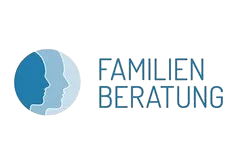Young women with children or children without a stable partnership
These women usually become pregnant unintentionally in their teenage years. The driving forces behind bringing the child into the world are, above all, the hope of finding an identity in motherhood and the endeavour to fulfil this role better than they experience or have experienced in their connection with their own mother.
In most cases, it is clear from the outset that the child's father will not take responsibility for family life. Under these circumstances, only individual mothers succeed in spatial separation from the family of origin, most remain within the family of origin with the child.
Despite the preparations, life with the infant is still a surprise for the young women and very few have the stamina to take care of and care for the child mainly themselves. The desire to be able to continue the previous, freer life becomes stronger again after some time, as does the longing for a partner who may "save" both, she and the child, from the inevitable dependence on the parents and in the sense of realizing their own life plan.
The emotional situation of most people consists of a pendulum between love and sacrifice for the child and blaming the child for preventing their happiness in life.
The concern with which this target group comes to the initial consultation is usually a secondary one, which initially conceals the actual problem.
For the counsellor, it is important to give it space and meaning in order to get into relationship with the woman.
A further step is to visually design the scenario and relationship structure in which the woman lives, to weigh the importance of the individual people around her and to define her position in it, and then to clarify with her where she wants to go.
According to the meaningfulness, individual caregivers, be it the mother, the parents, or the child's father, can be called in for counseling in order to clarify which supports are important for the woman and the child and which they are willing to provide without being overwhelmed.
In the work with the woman, the focus is on accompanying her out of the tangle of feelings and influencing forces, so that she can recognize and accept reality with all its demands and possibilities, and make decisions accordingly for herself and the child.
In the success of these steps, she experiences the increase in self-esteem and strengthening that she originally wished for when she decided to have a child.
Young women with child or children in a partnership
The desire for identity and the personal motives in connection with starting a family are the same for this target group, but the ideas, especially with regard to the involvement of the child's father, usually deviate greatly from reality.
In addition to one's own overwhelm in everyday life with the infant/toddler, there is dissatisfaction with the unfulfilled idea of togetherness.
In addition, there is the usually undesirable influence of the parents-in-law, which makes it difficult for the women to accept their support, even in the care of the child.
The relationship with the child thus becomes the subject of the partnership problem, in which the mostly divergent family ideologies of the families of origin play a major role.
The contribution of the partner is demanded, but at the same time experienced as interference or as a disturbance of the mother-child relationship.
Counselling is preferably done with the couple. Ideal ideas and internalizations of family values, which are only expressed in fragments in everyday life in the form of reproaches, can be communicated and reflected more easily in this framework. In this process, a separate, common concept for coping with life's tasks gradually emerges, which is then to be supported by both.
The relationships with parents and parents-in-law are addressed in order to recognize the possibilities of support without the fear of being completely at the mercy of their influences.
Positive effects of couple or parent work are that the child is given the chance to grow up without conflicts of loyalty and can orient itself in parental action.
In this way, the young parents themselves take the necessary steps towards maturation and detachment in favour of a freer and more appropriate future.
Conflictual couple relationships in families with older children
After years of starting a family, when the children are already more independent, conflicts often arise in the partnership. Men and women feel emotionally neglected, women struggle with the unthanked care role and the loss of opportunities in professional and other respects, men tend to have extramarital relationships in which their needs seem to be met more. Despite the former conscious decision to adopt this way of life, one's own dissatisfaction is reproached to the partner. The accusations cannot be refuted either, as they come from the source of the omissions and requests for change.
When the conflictual nature becomes noticeable to the children, they sometimes react anxiously and unsure whether their previous usual life will continue. This is also expressed in the partisanship for one or the other parent, which the parents then also like to take up as confirmation of the correctness of their point of view.
After the accusations are traced back to their actual content, it can be considered together whether and how wishes for change within the family can be realized, be it in the sense of reorganizing certain tasks or creating more freedom for the couple relationship, or for the exercise of individual interests.
The feeling of alienation can be transformed into the realization that each family member has developed over the years and a new basis for communication must be found that also includes these topics.
This work presupposes the will of everyone not to separate.
Patchwork - family problems
In the age of the partner at the stage of life, it often happens that children from different relationships meet, at least in phases, in a family context and then separate again when other partner constellations arise. This requires a high degree of flexibility for both parents and children, especially since it must also be defined who has the main residence where and where who is visiting.
The extent to which the persons concerned have detached themselves from the ideal image of a classic family plays an essential role in the emergence and management of problems, or how well the various relationships, especially with children or between the children, can form.
In the case of smaller children, the mother usually remains the stable caregiver, who also bears the responsibility, creates spatial and emotional conditions, and the new partner becomes, if possible, a male caregiver for the children. For his own children, he should ideally fulfill the role of father, regardless of whether they live together or separately, which also takes time, energy and financial resources away from the new partnership.
This is a common source of conflict, like the associated question of favoritism/neglect.
The counselling regarding parenthood should provide clarity about the extent and nature of the need for attention and care in the new constellation. If there are formative forces in the other family situation that exert a strong influence and also provide sufficient support, it does not make sense to counteract this, rather the offer of an additional loving relationship should exist.
On the other hand, for children who do not have strong attachment figures outside, it is inevitable to take responsibility for their thriving.
Communication between all those involved should be possible in the interests of the children, but according to the needs of the moment and not related to the past.
Counselling regarding the partnership emphasizes the importance of repeatedly demanding the loyalty of the partner and ensuring this oneself. Here, too, the focus is on the present and possible future planning and not on the past.
Violence in family relationships
Family violence can occur in any phase of cohabitation, but the soil on which it thrives is always dependence, whether through the attachment of women with small children and/or through the financial tasks that can only be mastered together, or simply through the tendency to violence in the personality.
The concept of violence includes physical, psychological and sexual violence.
Victims of violence are predominantly women, often also children, and occasionally men.
The cycle of violence, which often extends over many years, consists of phases of escalation, the outbreak, subsequent feelings of guilt, which can be followed by calmer times. The perpetrator's feelings of guilt can be expressed in different ways, be it that the guilt is shared and the victim is charged with a significant part. At the expense of the distortion of reality, the victim is also required to admit guilt.
Feelings of guilt on the part of the perpetrators can also be averted in increased cruelty towards the victim.
Often the act of violence takes place under the influence of alcohol, in which case the guilt is left to insanity and assurances that it will never happen again replace responsibility for what happened.
Appeasement strategies such as gifts and expressed cooperation serve to ensure that the victim does not draw any consequences and draws hope for an improvement in the relationship.
For these reasons, the cycle of violence is very difficult to break.
If affected women nevertheless visit the counselling centre, they must be given special care because they are in danger and need a lot of protection. It is also difficult for them to cope with the misery in which they have spent the years and that there is no miracle cure to change violent men.
For the frightened women, it is difficult to imagine that making the violence public by means of a complaint should result in a curbing of violence. Nor is the fact that separation is supposed to be the only way out easy for them to accept, especially since this step is usually associated with the abandonment of an outwardly functioning family life and existential security.
It is very difficult for the counsellor to assess the danger and to judge when a stay in the women's shelter becomes unavoidable for the safety of the woman/children.
The correction of distortions of reality is an important task in the counselling process, whereby the woman herself can better assess her situation and become willing to take necessary steps and changes.
For the women who gain these insights, it is inconceivable if the criminal consequences or the consequences of the acts of violence are low or not at all to the detriment of the perpetrator in the weighting of the reasons for divorce. A reparation for what has been suffered, which is necessary for the sense of justice and the inner process of coming to terms with it, remains pending.
Nor does the offender make amends, which would enable an insight into the suffering inflicted and subsequently possibly obtain the victim's forgiveness, does not take place.
As beneficial as the possibility of divorce by mutual consent is, in the case of previous marital violence it makes these essential inner processes impossible and the distortions of reality in the question of guilt remain.
The counsellor must compensate for these deficits and go through these processes with her on behalf of her, so that the woman is free for a satisfying new beginning.
Women who have lived in such relationships for years often develop a defensiveness that is perceived by those around them as aggressiveness and which they often maintain even after the separation.
Only the indication that these behaviors are no longer meaningful, but rather unfavorable for themselves, makes them recognize them as alien to nature.
After a divorce/separation has been completed, the destructiveness often continues in the custody dispute that lasts for years.
Instead of treating the potential for violence as an unacceptable phenomenon to therapy/healing, the appearance of normality is fought through and the pathological parts are rejected in the form of accusations/accusations against the child's mother.
As a result, women often find themselves in a position of justification before the court. The right of fathers to contact with their children, which is previously vehemently demanded of them, can become completely uninteresting after it has been achieved, whereby the children feel abandoned. However, it is not prescribed to them by the court and the youth welfare service what is in the best interests of the child, but it seems as if the fathers set up rules for themselves that best suit their current interests, be it because of alimony payments, to harm the mother or to manipulate the children.
The counsellor takes an enlightening and at the same time appeasing position towards the woman when she is supposed to familiarize her with the realities.
It will also strengthen the woman to be able to leave the position of justification and reclaim the space to express her own perceptions and ideas in public.
How these decisions and development processes turn out has a significant impact on the quality of life of women in old age.
After these painful experiences, many are no longer willing to enter into a new partner relationship. Career advancement is also less conceivable and less realistic for them. Likewise, the relationship with the children is characterized by conflicts of loyalty and devaluation.
Their susceptibility to illness is quite high, early retirement is almost impossible to obtain and most of them live at the subsistence level.
For these women, the relationship with the counsellor often embodies the good in the world, which they could no longer believe in in all their disappointments, because she knows about the injustices and their history of suffering and stands by them.
For the counsellor, it is important to support the pursuit of improving the quality of life, as well as the fundamental trust in other people.
All of this shows how socially relevant continuous women's and subject-specific counselling work is, which accompanies individual and collective changes in the long term.
The concept of holistic, life-story-oriented women's counseling, which always refers to social developments, is made available on the Frauenforums homepage.





